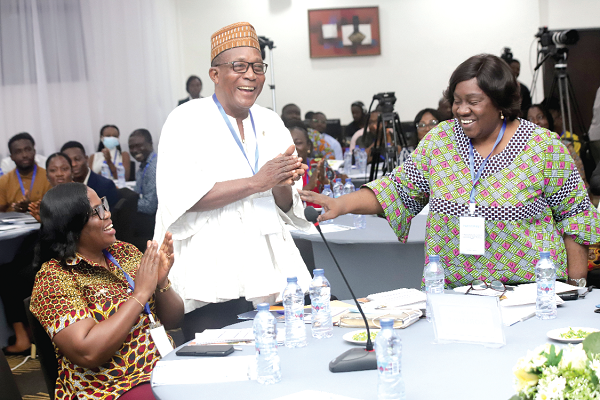
Stakeholders deliberate on establishment of social response strategy
Stakeholders have started discussions on the development of a national social protection shock response strategy.
The strategy involves interventions focused on unexpected adverse events such as floods, fire outbreaks, pandemics and conflicts that affect large proportions of a population.
Advertisement
At a maiden social protection shock response system workshop to solicit ideas in Accra yesterday, the participants were urged to work together to fill the gaps in the system.
The discussants were drawn from the National Development Planning Commission, the Centre for Social Policy Studies (CSPS), the Ministry of Gender, Children and Social Protection, the National Disaster Management Organisation (NADMO), the Ministry of Health, the UN International Children's Emergency Fund (UNICEF), municipal chief executives, academia, among others.
Some of the issues discussed bordered on the need for collaboration among relevant institutions, public education, efficiency, availability of funds, requisite policies, digitalisation and effective communication.
The programme was organised by the World Bank Group.
Intervention
The minister-designate for Gender, Children and Social Protection (MoGCSP), Lariba Zuweira Abudu, in a speech read on her behalf by the Director, Product SafetyNet Project of the ministry,
Mr Mawutor Ablorh, said social protection had proven to be an effective and reliable tool for addressing poverty and related vulnerabilities.
"The government is, therefore, implementing a national social protection policy which seeks to ensure that citizens are guaranteed relief from destitution as their basic right, close the inequality gap, ensure inclusion for all, as well as enable the people to participate effectively in the socio-economic growth and development of the country," she added.
Hajia Abudu also mentioned the national household registry as another initiative of the government to "serve as a primary mechanism for targeting, identification and selection of beneficiaries for social protection interventions”.
Others include the single window citizens engagement service programme where people could make enquiries, report grievances and seek necessary redress.
“These could be done through our toll-free numbers - 0800 800 800 and 0800 900 900, a WhatsApp number - 0559046709, a web-based unified case management system (UCMS) and an e-mail: [email protected]," she added.
Importance
The Director-General of NADMO, Eric Nana Agyemang-Prempeh, said the initiative was significant since it was intended to establish appropriate mechanisms to safeguard the most vulnerable in society.
“Through the establishment of a robust national shock response system, we can achieve our objective,” he added.
There were other presentations by the World Bank, the CSPS and UNICEF, who highlighted the need to provide emergency assistance to affected persons, build capacity of actors at national and decentralised levels (regional, district and community) to understand and identify linkages between disaster preparedness and risk management.




